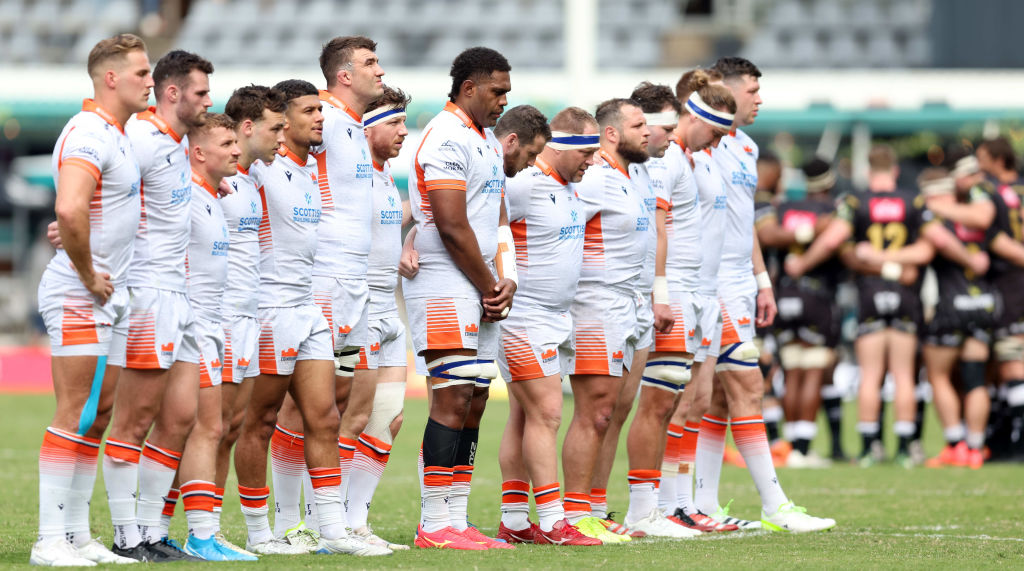Edinburgh and Ulster out of Challenge Cup following quarter-final defeats

Edinburgh exited the EPCR Challenge Cup after suffering a 36-30 quarter-final defeat against the Sharks in Durban.
Despite leading narrowly at half-time, Edinburgh were ultimately undone by a Sharks team that put poor United Rugby Championship form to one side.
Prop Pierre Schoeman, flanker Hamish Watson and hooker Dave Cherry – in the game’s final play – scored Edinburgh’s tries, while fly-half Ben Healy kicked three penalties and three conversions.
But Sharks’ superior firepower was underlined through touchdowns from centre Lukhanyo Am, flanker James Venter and hooker Bongi Mbonambi.
Fly-half Siya Masuku converted all three tries and kicked four penalties for an 18-point haul, while Curwin Bosch booted a late penalty as Sharks moved into a semi-final against Clermont Auvergne following their 53-14 victory over Ulster.
Healy kicked two early penalties for Edinburgh, but the Sharks hit back through an outstanding 17th-minute try when wing Makazole Mapimpi shredded the visiting defence before sending his fellow South African World Cup winner Am over to score.
Masuku added the conversion, and Edinburgh were undone again 10 minutes later by another high-class Sharks score.
Mapimpi and full-back Aphelele Fassi were the architects, getting in behind Edinburgh’s defence, then possession worked its way to lock Eben Etzebeth and he found an unmarked Venter for the try.
Masuku converted, but Etzebeth was then yellow-carded by referee Matthew Carley for a lineout infringement and Edinburgh capitalised on their temporary one-player advantage when Schoeman crashed over from close range and Healy added the extras.
It was an impressive end to the first half by Edinburgh, and Healy completed his penalty hat-trick to secure a 16-14 interval advantage.
Two Masuku penalties shortly after the break put the Sharks back in front, and a dominant third quarter was underlined when Mbonambi broke clear from the back of a maul for a try that Masuku converted, and there was no way back for Edinburgh.
Ulster saw their hopes of reaching the semi-finals crushed by Clermont at Stade Marcel-Michelin as the French heavyweights ran in seven tries.
Back-row forward Nick Timoney touched down twice for Ulster, with both scores converted by scrum-half John Cooney, but the visitors had no answer to Clermont’s pace and all-court game.
Number-eight Pita-Gus Sowakula scored two tries, as did flanker Peceli Yato, while Alex Newsome, Rob Simmons and Joris Jurand also breached the Ulster defence as Clermont romped home through 33 unanswered second-half points.
Fly-half Anthony Belleau kicked four conversions and two penalties, with Bautista Delguy and Sebastien Bezy each landing a conversion.





























